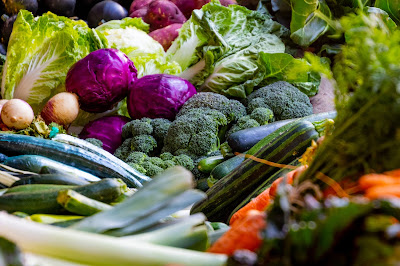It's the buzz word of the decade in case you missed it. It's not always a concrete thing to diagnose, it's based on a collection of symptoms. A leaky gut means your intestines have some permeability to them; undigested food particles and toxins can leak through these microscopic openings and into your blood stream. Current studies suggest that this is thought to be one of the main reasons for autoimmune disease.
Here is a list of the top 10 symptoms of leaky gut.
- Gas, bloating, constipation, diarrhea.
- Food sensitivities and intolerance
- Fatigue
- Brain fog, confusion
- Headaches/migraines
- Skin problems
- Widespread inflammation
- Joint pain
- Nutritional deficiences
- Autoimmune disease
If you suspect you have a leaky gut, there are some lifestyle changes you can make to improve your overall health but it's not going to be easy. Many of our bad habits with food are addictions that are hard to break, such as sugar, alcohol and caffeinated beverages. In order to win this fight, you have to have a plan.
One of the best places to start is with an elimination diet. Simply, begin to eliminate the known culprits that disrupt our gut microbiome. Those main offenders are-
- Gluten
- Sugar or sugar substitutes
- Alcohol
- Dairy
- Eggs
- Soy
- Processed and fast food
Some sources cite that an elimination diet needs to last at least 90 days in order for your gut to heal. Others say that in little as 23 days, you will begin to see improved health if you are 100% compliant. It takes 21 days for the antibodies in our immune system to 'turn over', hence 23 days may be a good number to start with. Everyone is different and if you notice the symptoms return after just 23 days, you may want to give yourself a little more time for your gut to heal.
So, what can you eat now that we have eliminated all the joy out of life?
- Choose healthy fats- olive, coconut, avocado oils
- Choose clean, organic, grass fed meats. Steer clear of fish with high levels of mercury
- Choose organic vegetables, nuts and seeds. 70% of your calories should come from good fruits and vegetables and 30% from protein while in an elimination diet.
- Choose to prepare your own food. Even so called, healthy pre-packaged foods are hidden sources of salt, fats and even sugars. The less a food is processed, the better it will be.
As you begin to introduce foods back into your diet, go slow and only introduce one food at a time for a week at a time. Pay attention to how you feel with each introduction. At the first sign of symptoms returning, give yourself some more time to rest before you try again. You can also try adding in probiotics to help in healing your gut.
Even though there isn't a single test to diagnose a leaky gut, it makes sense to visit your health care provider to rule out any other underlying conditions that may be causing your health issues. Never just self diagnose and hope for the best. The providers at Madison Women's Clinic would love to share in your healthful journey and be a supportive member of your healthcare team.


No comments:
Post a Comment